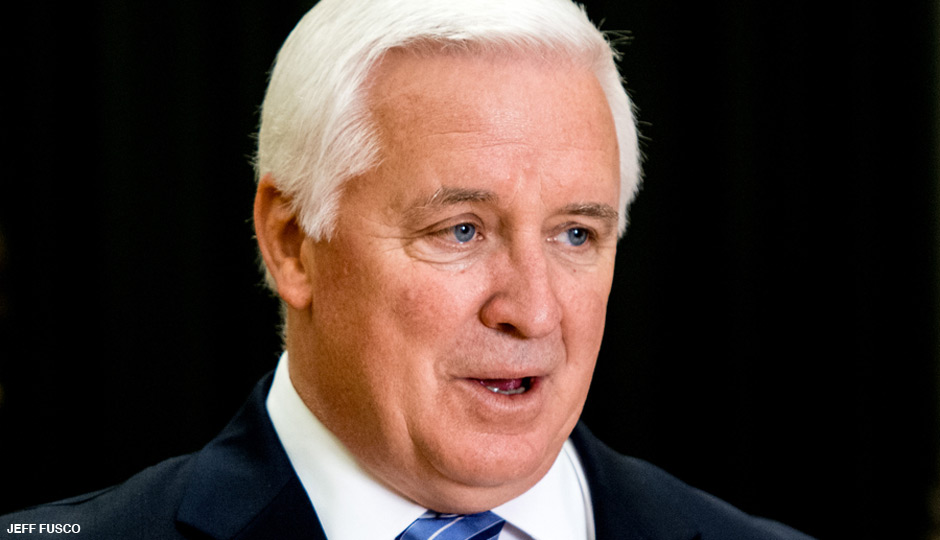On Gay Rights About-Face, Tom Corbett is Literally Unbelievable
I don’t want to call Gov. Tom Corbett a liar. So let’s just say that he strained credulity this week with his explanation for why he suddenly came out in favor of an anti-discrimination law to protect gays and lesbians.
Corbett, who has previously staked out conservative positions on social issues, told the Inquirer that he was “coming out in support” of the bill after learning that federal law does not cover discrimination in the state.
“I’ve had people come and talk to me about how they were discriminated against,” said Corbett, who served for eight years as the state’s attorney general. “The federal government has antidiscrimination laws. I believed they covered it.”
Corbett, remember, was Pennsylvania’s attorney general. Twice.
The attorney general’s job, you’ll also remember, is to be the chief law enforcement officer in the state. That means, of course, more than a passing familiarity with state laws — but also, it would seem, a general understanding of federal law as well. Why? Because sometimes state and federal laws overlap; sometimes they don’t. Understanding where jurisdiction begins and ends is an important part of deciding how to enforce the law.
This doesn’t, of course, mean that Corbett himself was intimately familiar with the ins and outs of housing discrimination law; as attorney general, certainly, issues regarding the state’s Human Relations Act governing such matters was probably delegated to an expert on staff.
Still, during Corbett’s time as attorney general, there were two major pieces of federal legislation in force regarding gay rights that the average person might be aware of. One was the “Don’t Ask, Don’t Tell” law that prohibited gays and lesbians from serving openly in the armed forces; the other was the Defense of Marriage Act, which let both states and the federal government refuse to recognize gay marriages in states where such marriages were legal.
To the extent that a living, breathing, politically active, news-consuming adult could look at that landscape and conclude that federal law was otherwise against gay discrimination … well, again, it at least begins to beggar belief. And when you add that adult’s law credentials to the mix, the explanation sounds increasingly implausible.
When you consider, too, that earlier versions of the bill Corbett now backs went before the Pennsylvania Legislature during his time as attorney general, and that nobody during that time apparently corrected Corbett of his misunderstanding of why it might be needed … well, what are we supposed to believe?
Let’s be fair here: Maybe Corbett, despite all the evidence he should’ve understood the limits of federal law, really didn’t. And if he did, well, what does it matter now that he’s changed his mind? It probably doesn’t matter that much, right?
Only: It would be nice if a politician more often just told us: “I changed my mind.”
It would be a terrific example, first of all. Remember: We’re so polarized these days, politically, that when we’re presented with facts that our position is wrong, that just tends to make us cling ever-tighter to that position. A willingness to bend to new evidence, then, might be a bold show of leadership.
It would also help us better see how, despite that polarization, we can and do change. It’s only been about 20 years since DOMA and “Don’t Ask” — both explicitly discriminatory against gays and lesbians — were written into federal law. It’s only been 11 years since the Supreme Court struck down state laws banning gay sex. Less than a generation later, even conservatives like Tom Corbett have figured they have to pay some minimal lip service to the rights of gays and lesbians in order to stay positioned within the mainstream of the electorate. Corbett changed his mind, in all likelihood, because we changed our minds. That’s remarkable. It’s a story we should tell ourselves over and over again about the possibilities of change in a steadfastly us-versus-them society.
It’s a good story. And right now, it’s more believable than the one the governor is telling.
Follow @JoelMMathis on Twitter.



